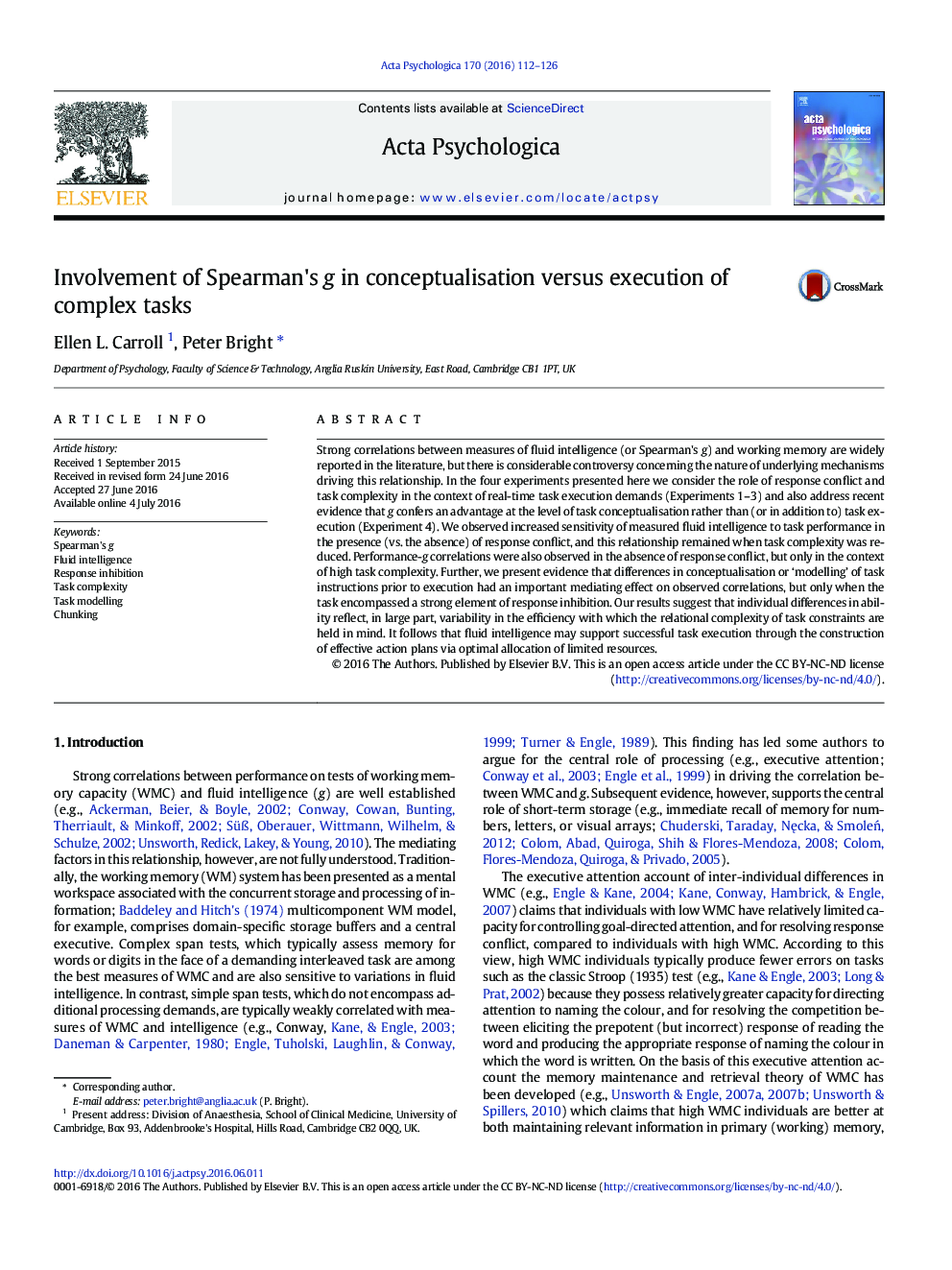| Article ID | Journal | Published Year | Pages | File Type |
|---|---|---|---|---|
| 7276979 | Acta Psychologica | 2016 | 15 Pages |
Abstract
Strong correlations between measures of fluid intelligence (or Spearman's g) and working memory are widely reported in the literature, but there is considerable controversy concerning the nature of underlying mechanisms driving this relationship. In the four experiments presented here we consider the role of response conflict and task complexity in the context of real-time task execution demands (Experiments 1-3) and also address recent evidence that g confers an advantage at the level of task conceptualisation rather than (or in addition to) task execution (Experiment 4). We observed increased sensitivity of measured fluid intelligence to task performance in the presence (vs. the absence) of response conflict, and this relationship remained when task complexity was reduced. Performance-g correlations were also observed in the absence of response conflict, but only in the context of high task complexity. Further, we present evidence that differences in conceptualisation or 'modelling' of task instructions prior to execution had an important mediating effect on observed correlations, but only when the task encompassed a strong element of response inhibition. Our results suggest that individual differences in ability reflect, in large part, variability in the efficiency with which the relational complexity of task constraints are held in mind. It follows that fluid intelligence may support successful task execution through the construction of effective action plans via optimal allocation of limited resources.
Related Topics
Life Sciences
Neuroscience
Cognitive Neuroscience
Authors
Ellen L. Carroll, Peter Bright,
